“You see Hans? It’s infallible. I can always tell a thorough going bastard when I see one” Colonel Kurt Steiner
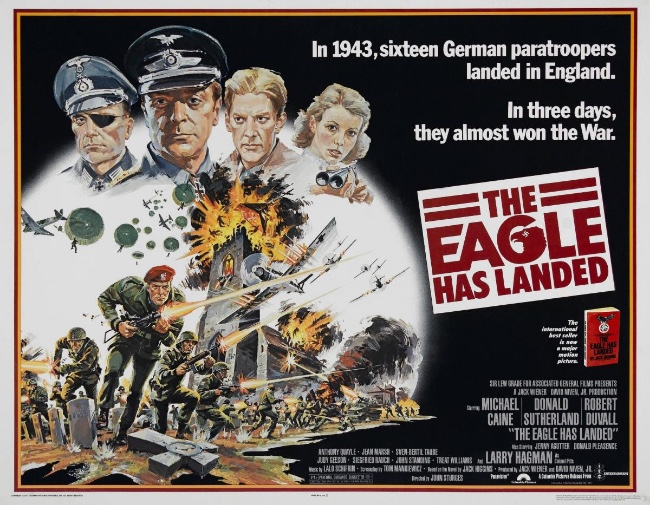
If there has been one genre of film that has dominated this blog so far then it is definitely the war film. With events still so fresh in people’s memories and a whole generation of filmmakers influenced by the war that probably shouldn’t come as a surprise. What is more surprising is that among such a volume and variety of films within the genre The Eagle Has Landed still manages to feel quite different.
The film focuses around an audacious German plot to kidnap Winston Churchill and with the war going against them use his capture as leverage in any potential peace deal. The mission is led by Colonel Steiner, played by Caine, a decorated war hero whose English education makes him the ideal man for the job. He is joined not just by his usual men, but also by Liam Devlin, played by Donald Sutherland, an Irish academic and IRA member who is drawn to the cause by his desire for a united Ireland. With Devlin undercover and the Germans posing as a Polish paratrooper unit they successfully infiltrate a small Norfolk village that is soon to play host to Churchill. A nearby American base threatens the German plans and when their cover is blown Steiner is left to try and carry out his mission alone.
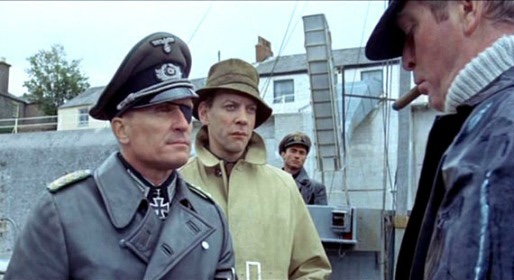
The Eagle Has Landed has two major hurdles to try and overcome. Firstly, how do you make events sufficiently dramatic when an audience with even a passing knowledge of history will already know the likely outcome? Secondly, how do you ensure that your predominantly British and American audience are going to engage in a plot that requires you to have at least some sympathy for the viewpoint and end goals of a group of Nazis? They are two significant challenges and how the film attempts to overcome them and the fact that it predominantly is very successful in doing so is what makes The Eagle Has Landed stand out from some of the more generic war films of the era.
Key to the way the film tackles that first issue is the general sense of folly and hopelessness that is evident throughout. When the plan is first mentioned it is seen by Anthony Quayle’s Admiral Canaris as an example of just how warped Adolf Hitler’s state of mind had become with initial plans only being drawn up as a way to appease him. As the plans take on a more serious and official nature there is still the sense that the mission is a fool’s errand with the ‘heroes’ doomed to fail. That mood rarely slips and is consistently acknowledged by the characters on screen whether it’s Devlin stating that “the only time this plan makes any sense to me is when I’m drunk” or Steiner making plans for how they will respond to the likelihood of their cover being blown. Instead we get to focus on the characters, their motivations for being involved and the strange, but undeniable heroism they exhibit rather than the success or failure of their mission being the main point of the film.
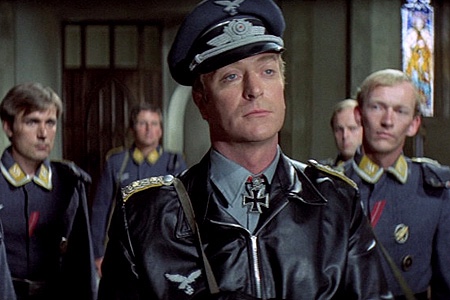
The success of the film comes down largely to how well it manages to overcome the second hurdle in making its disparate cast of characters into unlikely heroes. If the audience feels no sympathy for the characters then the film simply wouldn’t work. Fortunately Steiner, Devlin and the initiator of the plot, Colonel Radl, played by Robert Duvall all manage to establish themselves as mostly likeable characters. Tom Mankiewicz, already with three highly successful Bond films to his name adapted the script from the Jack Higgins novel and it is fair to say it abandons any thought of subtlety to get the audience at least partly on side with Steiner and his men. When we first meet him he and his men interfere with an operation to round up a group of Jewish civilians, mostly made up of women and children. His attempts to save one woman and her subsequent cold blooded murder by the SS is a very obvious message that while both may be Nazi’s there is a clear difference in their morality. While it may lack for subtlety it is no doubt effective and coupled with Caine’s innate likability it manages to immediately create a sense of goodwill towards Steiner and his men.
As the story develops there are further moments in the script that take the opportunity to remind the audience that the idea of one side being good and the other bad is something of an over simplification. Indeed it is ultimately an act of heroism by one of the German soldiers, as he gives his life to save a young girl, that results in their true identities being discovered. Perhaps most effective though is the introduction of Colonel Pitts the commanding officer of the American base, played with great relish by Larry Hagman. Pitts is an absolutely monstrous character that stands in stark contrast to the dignified Steiner. As we first meet him he is reacting with absolute devastation at the news he is to be moved before he can see any action. As a consequence when he hears that there are German soldiers on his doorstep he ignores the calls to ask for support and despite his lack of experience embarks on a reckless and ill-fated attempt to make himself into a hero. Pitts is a wonderfully created character that feels like a cross between the worst excesses of the characters from Platoon and Dr Strangelove. His reckless stupidity and the lack of respect he garners from his men gives a wonderful contrast to Steiner and again blurs the sense of right or wrong very nicely.
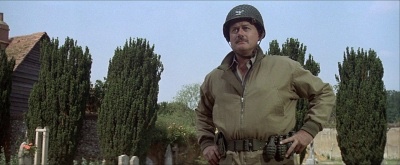
The scenes following on from the German’s identities being revealed represent the high points of the whole film. Following on from Hagman’s madcap cameo as Pitts there are some very nice moments between his successor Captain Clark and Steiner. Clark couldn’t be more different from Pitts as he shows himself to be a calm and capable soldier and the obvious respect between him and his German enemy shines from the screen, while his line to Steiner “there’s no such thing as death with honour” is particularly effective. With that scene shortly followed by a quietly powerful moment as Steiner’s men choose to sacrifice themselves to allow him one final chance to carry out the mission and Radl’s attempt to save his junior officer when he realises he will be used as a scapegoat for the failure of the mission representing a particularly poignant period in the film.
Where the film is perhaps less strong is in it’s direction. Caine and other cast members have been critical of John Sturges’ efforts in the past with the sense that the veteran director had lost his enthusiasm for the job by that stage. This was Sturges’ last film after a stellar career that included the likes of The Magnificent Seven, The Great Escape and Gunfight at the O.K. Corral on a highly impressive CV. His efforts here are by no means terrible, but at the same time feel curiously flat. It is definitely the case that the film works despite the direction rather than because of it and that is a huge tribute to both the cast and Mankiewicz’s screenplay. The other element of the film I feel is less successful is the love story between Devlin and Jenny Agutter’s Molly. Sutherland and Agutter are very good together, but the speed at which Molly goes from having met Devlin to being so deeply in love that she is willing to commit murder and treason for him feels somewhat rushed to say the least.
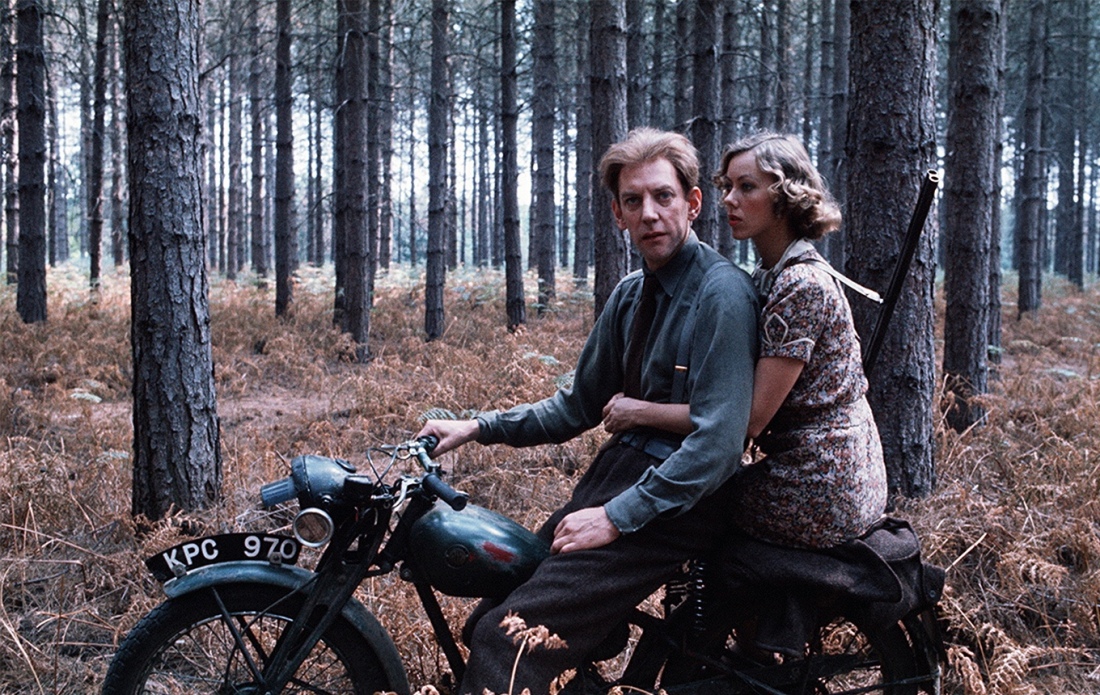
Any such issues are mostly mitigated by the general quality of the actors on show. Caine is a terrific piece of casting as Steiner. Without such a likeable screen presence at the helm the film simply wouldn’t work. He often has a quiet air of authority in his films and that certainly comes across in The Eagle Has Landed so that it is quite easy to believe he would be a well liked and respected officer. An interesting aspect of the film from an acting point of view is the accent work, or in many cases lack of accents. It is established early on that Steiner was English educated and speaks the language perfectly, but Caine does add a soft German accent. It is less noticeable than his slightly harsher attempt in The Last Valley and generally works absolutely fine. The rest of the cast are an interesting mix as Duvall and Sutherland maintain accents throughout with different levels of success. On the other hand a number of actors stick to their usual accents with Donald Pleasence a notable example as Himmler while somewhat more unfortunately Quayle has a German accent in his first scene, which he then seems to have given up on when he reappears.
Accents aside the cast is very strong. Sutherland gives an excellent performance as Devlin. Through a mixture of humour, natural charisma and a slight softening of the character he manages to make Devlin, like Steiner, into an engaging and likeable figure despite often having a somewhat blurred morality. Hagman as I’ve mentioned is an absolute tour-de-force as Pitts and makes a huge impact in a very short space of time. Duvall’s role is significantly less showy, but he brings an understated touch of class as he benefits from getting to play alongside the likes of Quayle and Pleasence in their minor roles. A lot of credit should go to Agutter as well as although I’ve stated that the romance between Molly and Devlin seems rushed she is largely responsible for the fact it still works sufficiently enough so as to not derail the action. Both Jean Marsh and John Standing give wonderful quietly dignified performances as two of the villagers on different sides of the battle. Such is the size and overall quality of the cast that it is difficult to give everybody a mention, but it would be remiss of me to ignore the superb John Barrett, most notable to me as Eric Olthwaite’s Dad in the brilliant Ripping Yarns, whose exasperated “more bloody foreigners” after it’s revealed his village has been invaded by Germans is just one of a number of lovely little comedy moments.
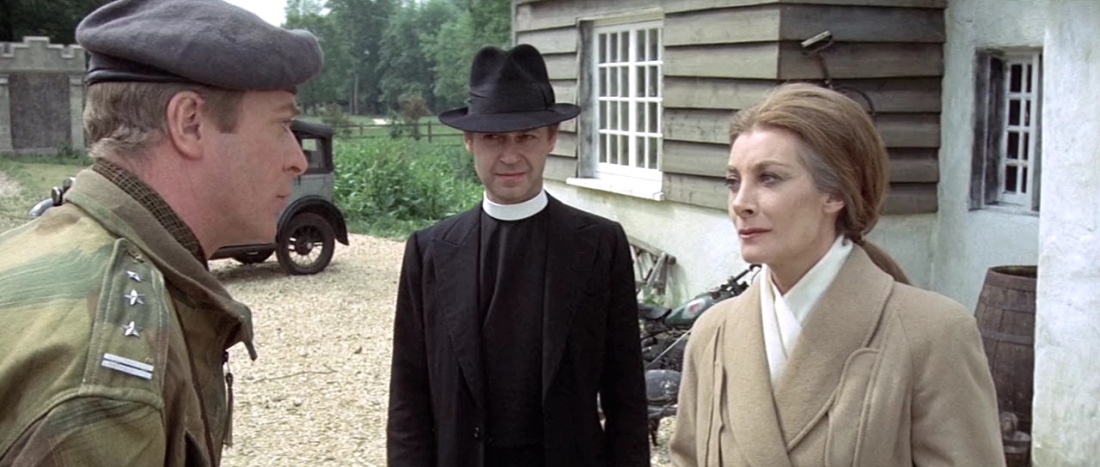
In one of his now several autobiographies, The Elephant To Hollywood, Caine described The Eagle Has Landed as a film that could have been brilliant, but in the end was mostly mediocre. While it certainly isn’t brilliant to describe it as mediocre feels a little unfair. It remains a mostly enjoyable, if flawed adventure story with the odd twist along the way that stands up pretty well in the lengthening list of war films I’ve covered in this blog so far.



